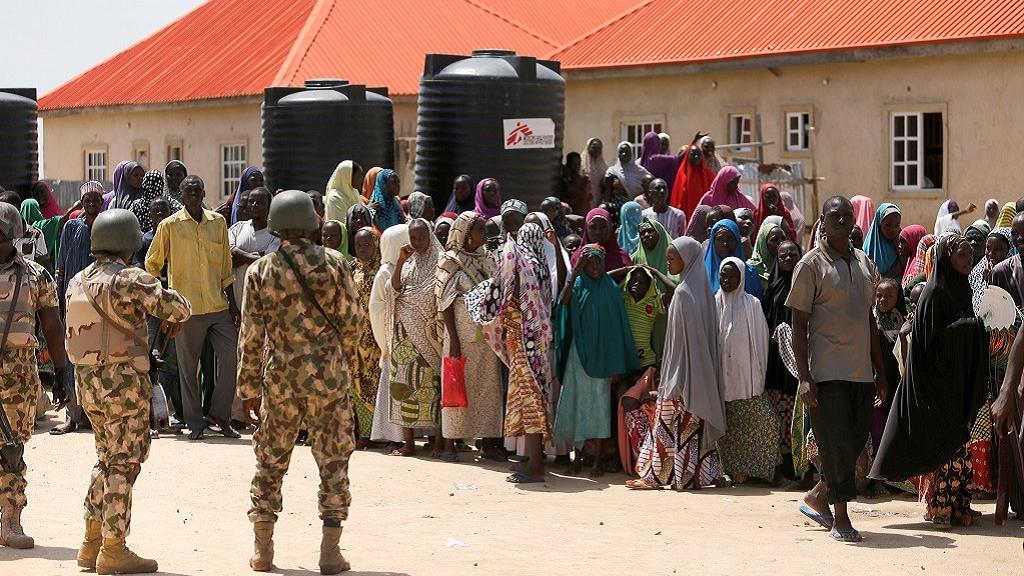“One day he demanded to have sex with me. I refused but he forced me. It happened just that one time, but soon I realized I was pregnant. When I informed him about my condition, he threatened to shoot and kill me if I told anyone else. So I was too afraid to report him.”
This is the story of a 17-year-old girl who told Human Rights Watch (HRW) researchers in late July that she was raped by a policeman in one of the seven internally displaced persons (IDP) camps in Maiduguri after fleeing from Boko Haram attacks in Borno state.
These accounts among others were captured in a report released by HRW on Monday stating that the Nigerian government is not doing enough to protect displaced women and girls who have been raped and sexually exploited by abusers including camp leaders, vigilante groups, policemen, and soldiers.
“It is bad enough that these women and girls are not getting much-needed support for the horrific trauma they suffered at the hands of Boko Haram. It is disgraceful and outrageous that people who should protect these women and girls are attacking and abusing them,” Mausi Segun, a senior Nigeria researcher at HRW said.
HRW documented abuses faced by 43 women and girls displaced from several villages including Abadam, Bama, Baga, Damasak, Dikwa, Gamboru Ngala, Gwoza, Kukawa, and Walassa.
Living in IDP camps in Maiduguri where their movement is severely restricted, “four of the victims said they were drugged and raped, while 37 were coerced into sex through false marriage promises and material and financial assistance”, the report stated.
It added that the women and girls were vulnerable because of irregular supplies of food, clothing, medicine, and other essentials, along with restricted movement in the camps.
Also, health workers told the researchers that the girls and women were ashamed to seek health care and psychological counseling, as fewer than five of the 43 women and girls interviewed had received any formal counseling.
The report cited several interventions by aid workers and HRW including requests for comments on the research findings yet the Nigerian government failed to respond.
“The minister of women affairs and social development, Senator Aisha Jumai Alhassan, promised in a meeting with Human Rights Watch on September 5 to investigate the allegations and then respond. Her response has not yet been received at time of writing,” it said.
Source: Africanews



